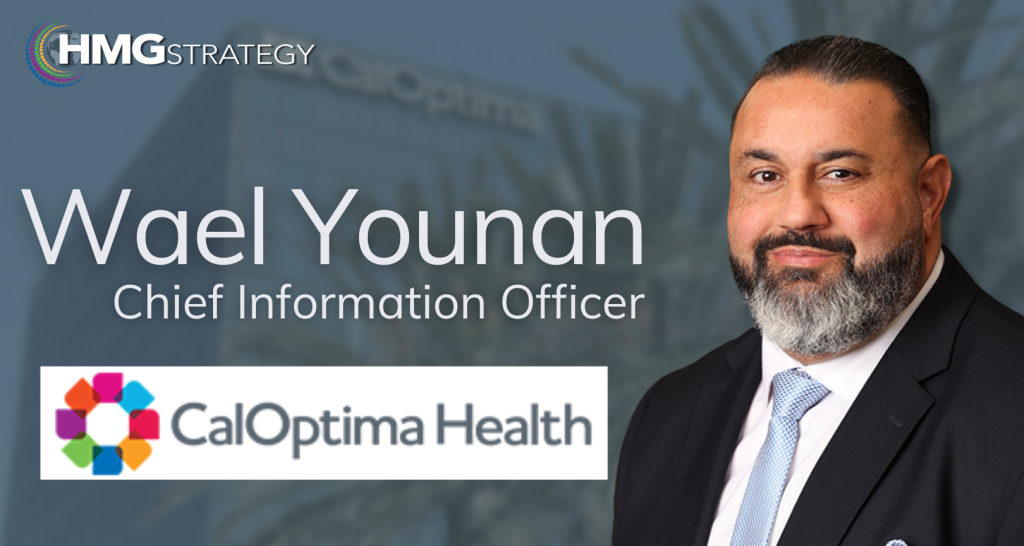Your cart is currently empty!
Wael Younan, CIO and CISO, CalOptima Health: Looking Cross-Industry to Foster Innovation
One of the benefits of examining how companies in other industries utilize technology is that it can often lead to breakthrough ideas for adapting use cases to address organizational challenges.

HMG Strategy Founder and CEO Hunter Muller recently spoke with Wael Younan, CIO and CISO at CalOptima Health, the publicly funded health insurance plan for Orange County, CA regarding opportunities for identifying business technology innovation from companies in other industries and why visionary leadership matters in today’s business environment.
Here’s a condensed version of their discussion.
Hunter Muller: Wael, it’s great to see you today. Congratulations for being nominated for the HMG Strategy Global Leadership Institute Mid Cap CIO and CISO of the Year award.
Wael Younan: Thank you so much. It’s an honor to be recognized.
HM: We’re studying visionary leadership here at HMG Strategy across the world. When you think of your leadership style, why does visionary leadership matter so much?
WY: I think what ends up happening in a lot of organizations is they take a look at what they need to fix right now and the immediate challenges they need to address. But what they’re not really taking a look at are the other problems they can foresee and get in front of. From a visionary leader perspective, one of the things I like to do is talk to people outside of the healthcare vertical to try to figure out what are other industries doing around technology and helping their organizations move forward and become better. And then leveraging those insights and how they could be applied to healthcare.
It’s really important to keep a keen eye on what’s happening out in the industry and talking to other people, and really exploring and thinking way outside of the box. With regards to applying technology, there shouldn’t be a box at all. Beyond that, then making decisions on how we can really improve our organizational structure and do things that have never been done.
HM: Excellent. When you think of the art of the possible, how do you go out there and ideate with your team?
WY: The number one thing that I think all people in any industry really should be doing is networking. Sitting down and having casual conversations about what they’re working on and how they’re going about it. What you’ll find is that there are some brilliant people out there that you can benefit from talking to. Sometimes, they will take a look at the work you’re doing and say, `Hey, that’s fascinating. How are you doing this?’ And I’m always happy to share but I’m more interested in what the other brilliant people out there are doing and how I can benefit from it. So, we have conversations relevant to how can you leverage their initiatives in a way that makes sense for you.
Sometimes, you find out about things that you weren’t even thinking about or a path you weren’t even considering. And then sitting back and reflecting on how that can be leveraged in our organization. Without those conversations, the peer networking, the collaboration and trying to figure out interoperability across multiple sectors, you lose something in translation because you’re pigeonholed in a particular silo. And that should never be the case. So good conversations result in great results.
HM: What percentage of your time should be spent outside of the organization?
WY: I would say probably a minimum of 20%. That 20% is really an investment to help the 80% of the time that you spend in your organization, and then make it really fruitful. So, you have to partition out time to really go out there and speak with others and join conferences and network with your peers. Or else, you’re sitting there consumed in your day-to-day operations without really having a vision for the future.
To watch the full interview with Wael,


